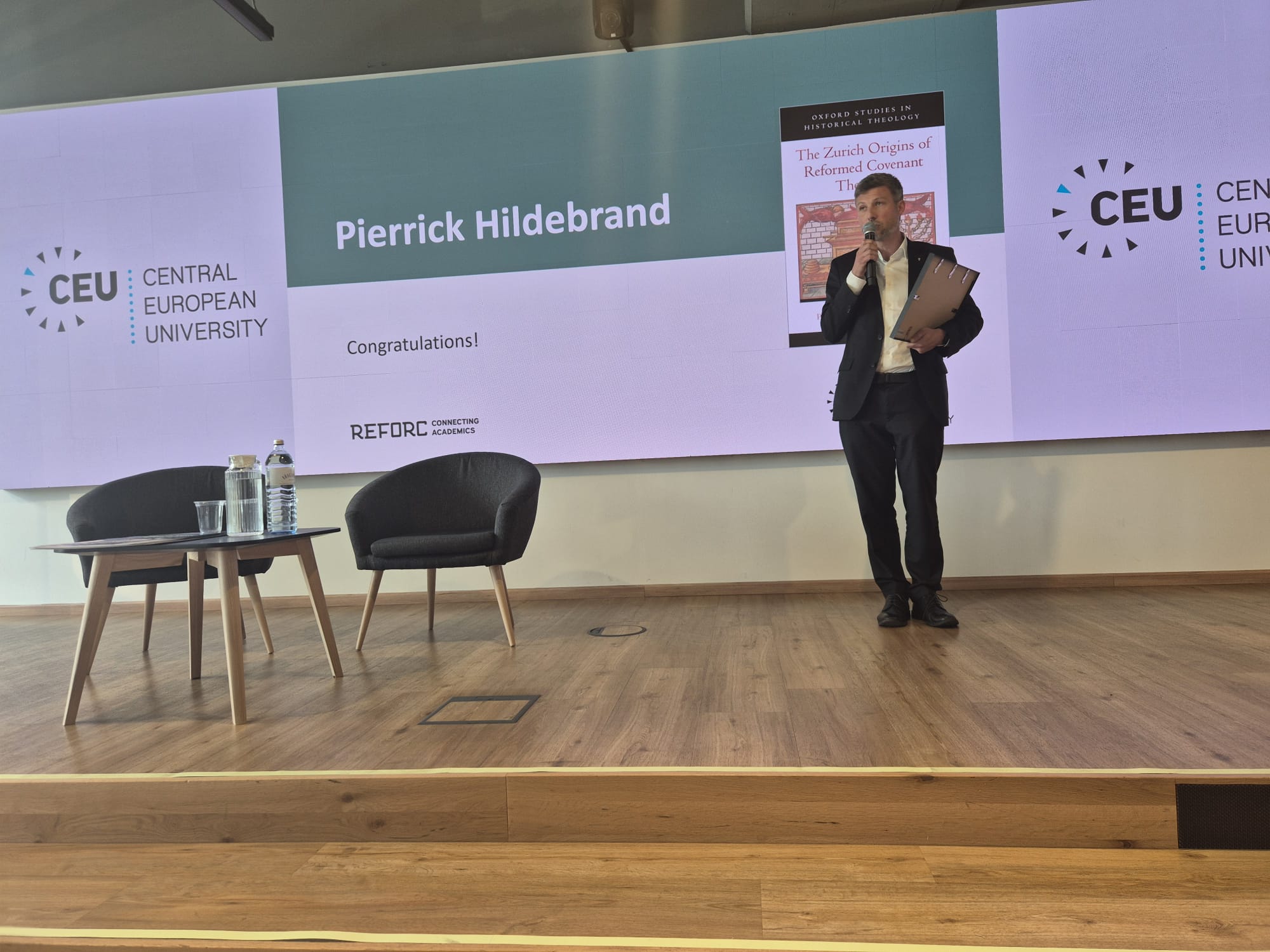23 May 2025
The REFORC Book Award 2025 was won by Pierrick Hildebrand for his book The Zurich Origins of Reformed Covenant Theology, published by Oxford University Press. What does he want to tell us about the book?

The winner was announced during the Fourteenth Annual REFORC Conference on Early Modern Christianity, whereby the award was handed to him. We spoke to award winner, and asked him some questions:
My study challenges previous research and offers evidence for the continuity of Reformed thought on the covenant from its origins in Zurich to its positive reception by Calvin and its further developments in Heidelberg by Zacharias Ursinus (1534-1583) and Caspar Olevian (1536-1587). This new interpretation was made possible by a close-reading of a wide array of sources that had previously been either unknown or unconsidered, including manuscripts. Over the past decades, research has, in contradictory ways, generally downplayed the contributions of the Reformers Huldrych Zwingli (1484-1531) and Heinrich Bullinger (1504-1575) to the Reformed tradition, especially in the post-Reformation period. Some scholars have postulated that covenant theology developed in Zurich as an alternative tradition to the purported decretal theology of Geneva. Or conversely, John Calvin is considered by some to be the most influential thinker on the covenant in the shaping of the Reformed tradition.
There are several insights which, when considered together, result in a more plausible narrative on the origins and development of Reformed covenant theology. If I had to choose one finding, it would be the variety of terms that Bullinger, in particular, associated with God’s covenant of grace with his people. The covenantal terminology used by the Zurich Reformer cannot be reduced to the legal term of “covenant”. Instead, there is wide range of relational terms such as “communion “, which function as synonyms for “covenant”. In fact, Bullinger made union with Christ the ultimate realization of God’s covenant. Recognizing these two aspects of the covenant — the legal and the mystical — as integrated into Bullinger’s theology allows us to view his extensive work in a new light and connect him with the theology of Heidelberg.
I was particularly interested in exegetical and homiletical material, such as commentaries and sermon notes, and I discovered an impressive amount of unedited sources in the Zurich archives. These sources have received little attention since the Reformation. Some of the manuscripts are transcribed in the appendix of my book. These less accessible sources are totally undervalued. I gained critical insights that would not have been possible if I had relied only on the Reformers’ main theological treatise. For example: Bullinger’s sermon notes on the first chapters of Genesis provide evidence of a creational covenant in his thought. This finding does not fit into the existing narrative, which considers the appearance of a prelapsarian covenant in the Reformed tradition a later development foreign to the Zurich Reformer. I realized that, if we take the Reformers’ self-understanding as foremost readers and expositors of Scripture seriously, their exegetical works should occupy a more prominent place in historical-theological research.
***
Thank you for this interview, Pierrick! We hope you will continue enjoying doing research.